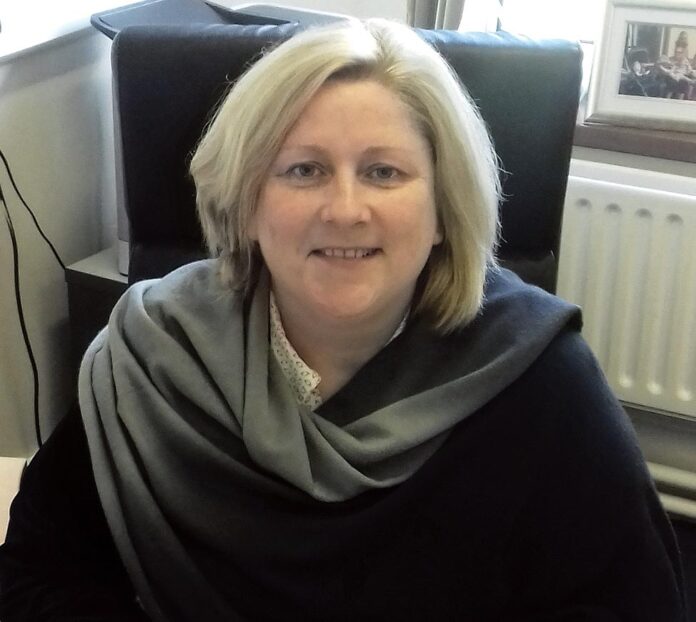WITH Leaving Certificate students across the county preparing for the next stage of their lives, they would do well to listen to the advice of one Ennis-based woman who certainly knows a thing or two about studying.
Christina Larkin has become the first Doctor of Nursing to graduate from University College Dublin. As she says herself, she was “a very average student” while in secondary school; however, at 46, she has gone on to graduate with the highest educational honour.
Dr Larkin hopes that by sharing her story, it will show people that there are many ways of achieving what you want and that it is never too late to follow your dreams.
“I am also quite excited to be speaking about my study at the Horatio Congress for European Psychiatric Nurses in the Faroe Islands in May. I have become a member of the European Violence in Psychiatry Research Group so I am looking forward to meeting other researchers in this area, making connections and plans for collaborative working across Europe,” she said.
Growing up in Kilkee, Dr Larkin went to school in the convent. She began her nursing studies at just 16 in England, living and working in the UK, before returning home to Clare in 2001 and settling in Ennis.
She recalled, “I was a fairly average student in school and went for my interview for nursing to get a day off school. I had a great English teacher, Mrs Hurley, and so I wanted to be an English teacher also. However, once I passed the interview for nursing, there was no going back – lucky for me, I loved it from the first day I started.
“I trained in Claybury Hospital in Essex and worked in and around East London for about 15 years in different roles. I was always doing some kind of course and I had just completed my Masters when I decided to move back home in 2001. Since then, I have been living in Ennis and working for the HSE.”
Her decision to undertake the doctorate was heavily influenced by the recession at the time. “I was sick of the negativity at work, in the news and in life in general. I figured the doctorate would give me some focus and it definitely did that. My life changed over the four years, in that I really learned what I am capable of. There were moments where I thought I wouldn’t be able to finish, as well as moments where I was flying high, loving it. It was a humbling experience in that I was hugely reliant on my family, especially my parents, and work colleagues to keep me focused.
“I was also dependent upon the nursing staff in the units where the data was being collected to complete the forms and participate in the interviews. I am so grateful to those individuals who gave of their time and energy to get the research done.”
Dr Larkin’s research for her doctorate centres on the role that nurses in charge of acute mental health units can have in preventing and managing aggression.
“Unfortunately, aggression is something that happens on a fairly regular basis in healthcare internationally and there is a large body of research around the causes and management of aggression in acute mental health units. My study aimed to address a gap in the current research to explore the role played by the nurse, who is in charge of these units on a daily basis, in preventing and managing aggression.
“The key finding is that these nurses play a critical role in this area. For example, over the course of the study, 75% of incidents where the nurse in charge responded to an aggressive incident were resolved without further escalation in aggression. The study also identified the knowledge, skills and attitudes required for positive outcomes when dealing with different types of aggression. These nurses influence how staff interact with patients and how they respond to actual and potential aggression. Fundamentally, they set the tone for how things are done on their particular shifts. The study identified key skills to engage in this role and makes a number of recommendations from a practice, research, educational and organisational perspective.”
Dr Larkin believes that her research can contribute to practice in some way. “I would love to see the recommendations having a positive impact for nurses and service-users alike. I am proud to contribute to the research in this area and will be publishing a number of papers in specialist journals to share the findings.”
Dr Larkin is also hopeful that her work will help inspire others, not just in nursing but in all walks of life, as they look to the future.
“You don’t have to be a genius to do a doctorate, but I would advise you to study something you are passionate about; otherwise, when the going gets tough, you won’t last.
“Also, it is never too late. I graduated aged 46 years, the oldest person for conferral.”
Dr Larkin concluded, “At this time of year, young people are under serious pressure, with exams and decisions about their future. There are so many options for further education these days and there is flexibility to change career or study choice, if you are not happy.”
Motoring editor - The Clare Champion
Former Chairman and voting member of Irish Motoring Writers' Association

